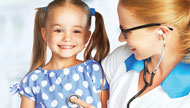
-
 Contractual Partners
From this section it is possible to access to a description of each contractual partner of the Softis-Ped project.
Contractual Partners
From this section it is possible to access to a description of each contractual partner of the Softis-Ped project.
-
 Lecturers
From this section it is possible to access to the information about the paediatric lecturers involved in the Softis-Ped Project in the 5 European countries involved.
Lecturers
From this section it is possible to access to the information about the paediatric lecturers involved in the Softis-Ped Project in the 5 European countries involved.
-
 Residents Working with Children Information
From this section it is possible to access to the information about the paediatricians involved in the Softis-Ped Project in the 5 European countries involved.
Residents Working with Children Information
From this section it is possible to access to the information about the paediatricians involved in the Softis-Ped Project in the 5 European countries involved.
-
 Paediatric students
From this section it is possible to access to the information about the paediatric students involved in the Softis-Ped Project in the 5 European countries involved.
Paediatric students
From this section it is possible to access to the information about the paediatric students involved in the Softis-Ped Project in the 5 European countries involved.
-
 Associated Partners
As a result of the exploitation activity a number of associated partners officially joined the project in order to contribute to the improvement of the project impact on their target groups and to ensure the project sustainability by continuing using the project deliverables in the next years.
Associated Partners
As a result of the exploitation activity a number of associated partners officially joined the project in order to contribute to the improvement of the project impact on their target groups and to ensure the project sustainability by continuing using the project deliverables in the next years.
Events
The Softis-Ped project has been promoted trough conferences and articles.
-
 Conferences
The Softis-Ped project was presented in a number of events in order to report about the activities carried out and the results achieved
Conferences
The Softis-Ped project was presented in a number of events in order to report about the activities carried out and the results achieved
-
 Training Activity
The training activity 'Soft Skills in Pediatrics' was held at the University of Medicine and Pharmacy of Tirgu Mures (RO)
Training Activity
The training activity 'Soft Skills in Pediatrics' was held at the University of Medicine and Pharmacy of Tirgu Mures (RO)
-
 Press Review
The Softis-Ped project partnership made contacts with web sites focusing on the fields of paediatrics and education
Press Review
The Softis-Ped project partnership made contacts with web sites focusing on the fields of paediatrics and education
This section of the Softis-Ped portal provides administrative information for the project contractual partners and for the European Commission and it is password protected.
Training for Paediatricians and Paediatric Students
Homepage > Training > Training for Paediatricians and Paediatric Students

This training package is addressed to students and medical practitioners in paediatrics on how to autonomously learn, develop and consolidate their soft skills for improving the quality of paediatric services.
Communicating with Parents
- Communicating with children in absence of their parentsIt often happens that the child arrives in the clinic without adult company or the parent is not present at the examination when the doctor is in the school. In this case, it may be difficult for a doctor or a healthcare staff to diagnose or adequately communicate the therapy
- Parang N Mehta: Communication Skills – Talking to Parents Good communication is an art that is so far acquired, developed and improved by experience. However, it can also be taught, and assessed, by means of structured programs
- Marcia Levetown and the Committee on Bioethics: Communicating With Children and Families: From Everyday Interactions to Skill in Conveying Distressing InformationThis article provides a review of the evidence regarding clinical communication in the pediatric setting, covering the spectrum from outpatient primary care consultation to death notification, and provides practical suggestions to improve communication with patients and families, enabling more effective, efficient, and empathic pediatric health care.


